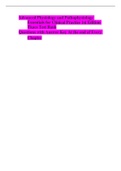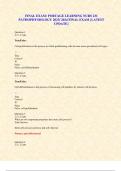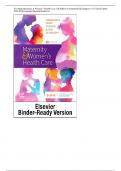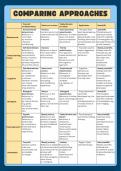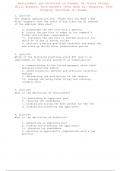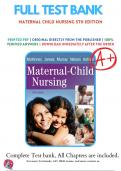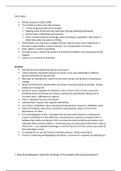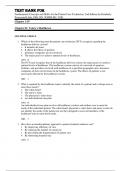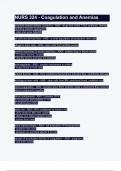Exam (elaborations)
Advanced Physiology and Pathophysiology Essentials for Clinical Practice 1st Edition Tkacs Test Bank -Questions with Answer Key At the end of Every Chapter
- Course
- Advanced Physiology and Pathophysiology Essentials for Clinical Practice 1st Edition Tkacs Test Bank
- Institution
- Chamberlain College Of Nursing
Advanced Physiology and Pathophysiology Essentials for Clinical Practice 1st Edition Tkacs Test Bank Chapter 1. THE FOUNDATIONAL CONCEPTS OF CLINICAL PRACTICE 1. The characteristic, localized cardinal signs of acute inflammation include: A) fever. B) fatigue. C) redness. D) granuloma. 2. ...
[Show more]
